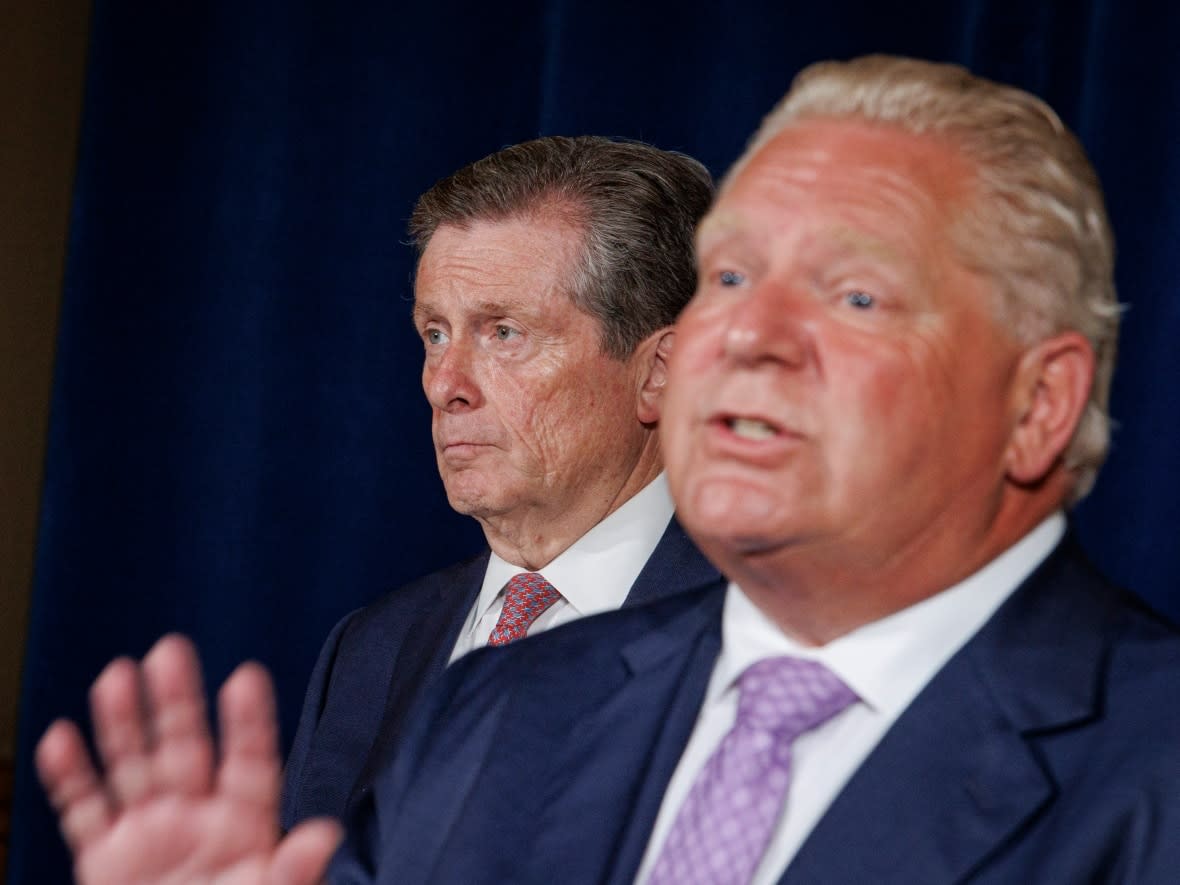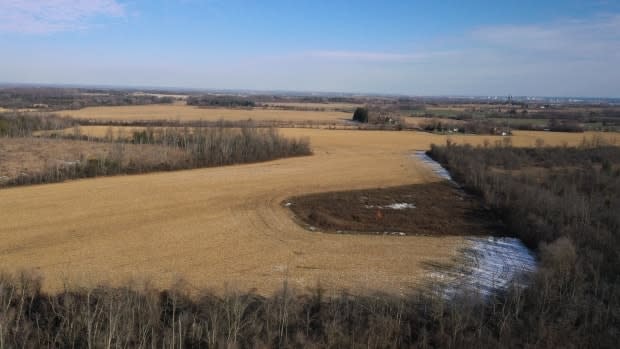Ontario passes law boosting 'strong mayor' powers in Toronto, Ottawa

Ontario has passed legislation that allows Toronto and Ottawa to enact certain bylaws even if a minority of councillors are in favour, capping off a whirlwind of widely criticized housing-related moves.
The latest bill allows the province to appoint the regional chairs in Niagara, Peel and York, and boosts so-called strong mayor powers that the government gave to Toronto and Ottawa earlier this year.
It also repeals legislation from 2005 that designated a wide swath of land in Pickering called the Duffins Rouge Agricultural Preserve for farm-related uses only. While the area remains a part of the Greenbelt, the province is proposing to take it out, which could open the area for development.
The first set of powers allowed the leaders to veto council decisions deemed to hamper the creation of new homes, prepare and table the city's budget, as well as hiring and firing department heads. The new powers allow them to propose housing-related bylaws and pass them with the support of one-third of councillors.
The legislation follows another housing law that angered municipalities because it cuts fees developers pay that they use to build infrastructure for new homes and upset environmentalists who say it weakens the role of conservation authorities.
As well, the government has proposed to remove land from 15 different areas of the protected Greenbelt so that 50,000 homes can be built, while adding acres elsewhere.
Municipal Affairs and Housing Minister Steve Clark was not made available to answer reporters' questions after the passage of his latest legislation, but he did release a promotional-style video for it Thursday on Twitter.
"Ontario is in a housing supply crisis and the situation is serious," he said over images of home construction and stirring
music. "Some of our proposals have been controversial, but we knew from the start that real change would not be easy and that those who benefit from the status quo would stand in our way."
Impact on Toronto, Ottawa councils
While Toronto Mayor John Tory has said he will use the powers in a limited and responsible way, Ottawa Mayor Mark Sutcliffe has said he is not interested in using them.
Ottawa council voted late November to oppose the bill and instead request the province to maintain the requirement to have majority approval to pass a bylaw or resolution.
Tory said Tuesday he's still determined to reach council consensus on issues, and will "continue to work collaboratively with the Council to get things done."
Fifteen councillors asked the province to halt the bill's legislation, citing concerns they weren't consulted, saying any changes to the governance of the city should be decided by council and residents.
Premier Doug Ford has said Toronto and Ottawa are acting as a "test area" before the powers are expanded to other cities next year.
Opposition parties slam bill
Interim Ontario NDP Leader Peter Tabuns called the recently passed legislation an "attack on democracy" that will do nothing to solve Ontario's housing crisis.
"Ontarians value democracy, and people are rightly concerned about Doug Ford's latest ploy to wrest power from local, democratically elected decision-makers, as he is giving himself permission to do with the just-passed Bill 39.
"If this government actually wanted to solve the housing crisis, it would commit to building more affordable homes for Ontarians, bringing in stronger rent control measures, building missing middle homes in existing neighbourhoods and clamping down on speculation."

The Ontario Green Party Leader Mike Schreiner says the bill's only objective is to allow Ford to "ride roughshod" over municipal councillors to push through his provincial priorities.
"With the passage of Bill 39, today will be remembered as the day the majority party in the Ontario legislature voted for minority rule," he said in a statement.
"By giving select 'strong mayors' the power to pass bylaws with support from only a third of elected councillors, the Ford government has dealt a lethal blow to public participation in municipal decision making."
He said the Duffins Rouge move is no less egregious.
Government also under fire over Greenbelt changes
The Ford government has also drawn the ire of critics over plans to remove 7,400 acres from 15 different areas of the protected Greenbelt, while adding 9,400 acres elsewhere.
Advocates question not only the environmental impacts and necessity of building in the Greenbelt — the government's own task force said a shortage of land isn't the cause of the housing crisis — but also the government's motivations.
Some prominent developers who are Progressive Conservative donors bought Greenbelt land in the past few years despite Ford and Clark's past public pronouncements it wouldn't be developed, with one purchase happening as recently as September, investigations by the CBC, The Globe and Mail, the Toronto Star and the Narwhal have found.
Both Ford and Clark have denied giving developers advance notice of the Greenbelt plans.
Clark has promised to launch a third-party audit of municipal finances in so-far undecided "select" communities, focused on reserve funds and the fees housing developers pay.
If the municipalities do indeed have a shortfall in funds needed to support infrastructure for new homes, the province will make them "whole," Clark said.


